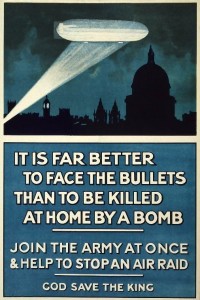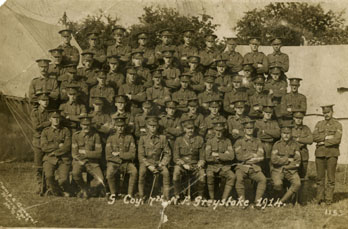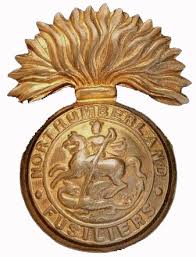BERWICK ADVERTISER 7 MAY 1915
BERWICK PETTY SESSIONS
THURSDAY
Before the Mayor ( Thos. Wilson, Esq.), and Captain Norman, R.N.
Bright Lights- Mr Wm. Kirk Hawkins, cabinet- maker, Berwick, was charged that he did unlawfully allow a bright light to show in his window in Hide Hill, Berwick, at 11.10 p.m. on the 30th April. The charge was brought up under the Defence of the Realm Act. Defendant said, in pleading guilty, he was quite unconscious of the offence. The Chief Constable said it was the third time the defendant had been cautioned. Sergeant Wilson said he saw a very bright light coming from one of the bedrooms in the top window. He stood several minutes, but the light never went up. Witness rang the bell, and defendant put his head over the window complained and asked what he wanted. Witness told defendant the light was too bright, and told him to put it out, and defendant called down and told him to be more civil. Defendant said he had been very careful, and was sorry to be there that day under such circumstances. Fined 12s 6d, the Mayor stating that in future cases persons brought up for the same offence would be more severely dealt with.
CORN EXCHANGE AND ITS ROOF LIGHT
If there is one conspicuous feature about our Corn Exchange it is its noble commanding dome, and the brilliance of the light streaming down through the expansive and glittering canopy. No wonder there were reasonable apprehensions and fears at the approach of the recent grand concert held on behalf of the Berwick Improvised Hospitals, for it was realised that unless the interior light could be sufficiently obscured the blaze of illuminant penetrating to the sky would be an infringement of the emergency bye-laws, possibly leading to the upsetting of the very laudable object aimed by the promoters. It was at such a critical juncture that Mr Angwin, manager of the Electrical Supply Company, came to the rescue of the local committee.
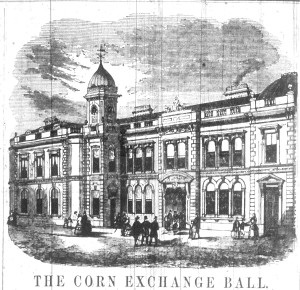
He so manipulated and arranged the lamps of the Corn Exchange that these fully met the requirements of the Chief Constable. The lighting of the Exchange if deprived of its usual brilliance on the other hand presented a mellow and homely effect, and was certainly in this respect in consonance with the strenuousness of the critical times in which we live. The result of the concert was a most pronounced success, and Mr W.J.Dixon, on behalf of Colonel Fraser, R.A.M.C. (T.), made a neat little speech of thanks. the appearance of Boy Scouts, under the command of Scoutmaster R. C. Clements, was an attractive feature, and they lent material assistance in the sale of programmes.
RIDING BERWICK BOUNDS
THE MAYOR’S BANQUET
The 307th time of Riding the Bounds of Berwick was observed on Monday when a large crowd assembled on the Parade to watch the start. There were only six equestrians as compared with nine on the previous year, while there were nine drawn vehicles containing citizens who preferred the more sedate and leisurely mode of travelling. Ideal weather favoured the function.
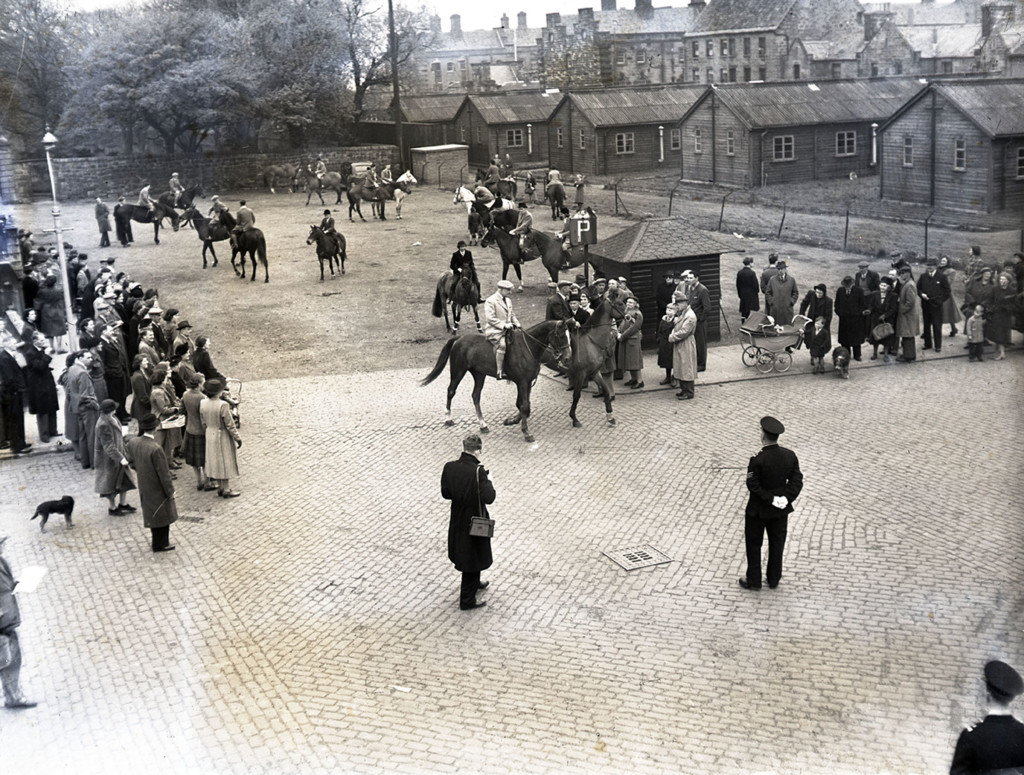
Sharp to the mid-day hour the horsemen set off by the way of the fields, the brakes proceeded by Church Street, High Street, Castlegate and North Road. As usual at Mordington the school children were lined up in expectation of their usual supply of oranges from Chief Constable Nicholson of which they received an ample share engaging in an amusing scramble as the fruit was thrown amongst them. At Canty’s Bridge the horsemen indulged in their usual races. At the Inn a supply of refreshments on a liberal scale were served out. On returning to Berwick a short halt was made at the Town Hall where the Mayor returned his thanks to those who had accompanied him in the historical ceremony, and in return hearty cheers were raised for thee Mayor, the Mayoress, and their little daughter.
The horsemen were:- Mr John Lauder, Burnbank, Foulden; the Messrs Waites, Castlehills and Mr Collingwood, who was accompanied by Miss Collingwood.
BERWICK EDUCATION COMMITTEE
CORPORAL PUNISHMENT
TEACHERS’ POWERS
A monthly meeting of Berwick Education Committee was held in the Council Chamber of the Town Hall on Wednesday morning. The Chairman, Mr W.J. Dixon, presided, and others present were:- Ald. Greenwood, Capt. Norman, R.N. Messers C. Forsyth, A.J. Dodds, Jos. Watson, E. Brewis, A.D. Watt, J. McDonald, W. C. Richardson, along with the Clerk ( Mr Jas. Gibson) and the Borough Treasurer, Mr T.C. Smith.
THE LATE SERGEANT JONES
The Chairman, prior to the commencement of the business, made the following feeling reference to the death of Sergeant L. S. T. Jones of the 7th N.F., who has been killed in action:- before proceeding with the business of the meeting I refer with the deepest regret to the sad death of Sergeant L. S. T. Jones of the 7th N.F., who was killed in action on 26th April. As a teacher in St. Mary’s School he was beloved alike by his fellow teachers and the children. The Education Committee have lost a good and competent teacher and the borough a useful and promising citizen. As President of Berwick and District Harriers I was intimately associated with him in this branch of sport, he being one of our best and gamest cross-country runners. Only a few weeks ago he was second in a military cross-country run at Blyth. I ever found him a keen and genuine sportsman, and as a sportsman he has died the most glorious death a man can die- fighting for his King and Country. I now move a resolution that a letter be sent to his relatives from this Committee expressing our sincere sympathy with them in their sad bereavement, and our admiration of his gallant conduct; and ask Captain Norman, a Manager of St. Mary’s School, to second the resolution.
Captain Norman in seconding said:- Mr Jones was a teacher of great ability and much promise, devoted to his work, and became a great favourite of staff and scholars alike during his four years service as certificated assistant. His work has been commended by Inspectors, especially in drawing, in which he was highly qualified. His interest in the boys led him to form a drill and gymnasium class. He entered thoroughly into and took a leading part on the games and sports. In promoting swimming, and football, and harriers races his efforts were unceasing. I am sure that the boys as well as the teachers of his school will very keenly feel his loss; and I should like to extend these remarks by saying that a man of that sort is a most serious loss not only to his own immediate circle, but to the community in which for the last 4 years he has been usefully engaged.
The resolution was unanimously adopted, the members the while standing.
In Memory of
Sergeant
LEON STANLEY TREVOR JONES
1384, 1st/7th Battalion, Northumberland Fusiliers who died 26 April 1915, aged 25. Nephew of Mrs. E. M. Memmott, of 55, Meersbrook Road, Sheffield. Remembered with Honour, Ypres (Menin Gate) Memorial.
(Source: Commonwealth War Graves Commission)



